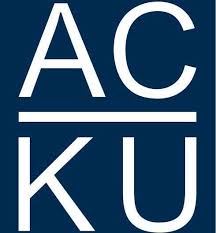Counterinsurgency scorecard : Afghanistan in early 2011 relative to the insurgencies of the past 30 years / Christopher Paul.
Material type: TextLanguage: English Series: Publication details: Santa Monica : RAND National Defense Research Institute, 2011. Description: v, 19 p. : ill. ; 28 cmISBN:
TextLanguage: English Series: Publication details: Santa Monica : RAND National Defense Research Institute, 2011. Description: v, 19 p. : ill. ; 28 cmISBN: - 0833052489
- 9780833052483
- Pamphlet DS371.4. P38 2011
- Also available via the internet.
| Item type | Current library | Call number | Status | Date due | Barcode | Item holds | |
|---|---|---|---|---|---|---|---|
 Monograph
Monograph
|
Afghanistan Centre at Kabul University | Pamphlet DS371.4.P38 2011 (Browse shelf(Opens below)) | Available | 3ACKU000363431 |
“Approved for public release; distribution unlimited”—title page.
“RAND National Defense Research Institute”—cover page.
Includes bibliographical references
Summary: The previously published RAND monograph, Victory Has a Thousand Fathers: Sources of Success in Counterinsurgency, used detailed case studies of the 30 insurgencies worldwide begun and completed between 1978 and 2008 to analyze correlates of success in counterinsurgency (COIN). A core finding was that a case’s score on a scorecard of 15 equally weighted good and 12 equally weighted bad COIN factors and practices perfectly predicted the outcome of those 30 insurgencies. That is, the balance of good and bad factors and practices correlated with either a COIN win (insurgency loss) or a COIN loss (insurgency win) in the overall case. Using the scorecard approach as its foundation, a RAND project sought to extend the findings to the case of Afghanistan in early 2011. The effort involved an expert elicitation, or Delphi, exercise in which experts were asked to make "worst-case" assessments of the factors to complete the scorecard for ongoing operations in Afghanistan. The consensus results revealed that early 2011 Afghanistan scores in the middle of the historical record in terms of COIN wins and losses: its score was lower than that in the lowest-scoring historical COIN win but higher than that in the highest-scoring COIN loss. This suggests an uncertain outcome in Afghanistan, but the findings may help provide additional guidance as operations continue.
Also available via the internet.
English
